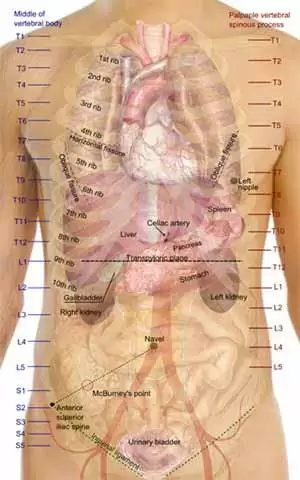
Celiac.com 09/09/2013 - Many people with celiac disease show slightly elevated liver enzymes, though these enzyme levels usually return to normal after gluten-free diet.
A team of researchers recently set out to investigate the cause and prevalence of altered liver function tests in celiac patients, basally and after 1 year of gluten-free diet.
Celiac.com Sponsor (A12):
The research team included Giovanni Casella, Elisabetta Antonelli, Camillo Di Bella, Vincenzo Villanacci, Lucia Fanini, Vittorio Baldini, and Gabrio Bassotti.
They are affiliated with the Medical Department, and the Clinical Pathology Department of Desio Hospital in Monza and Brianza, Italy, the Department of Clinical and Experimental Medicine, Gastroenterology and Hepatology Section at the University of Perugia in Perugia, Italy, and with the Department of Laboratory Diagnostics, Pathology Section, Brescia, Italy.
The team gathered data from 245 untreated celiac disease patients, 196 women and 49 men, ranging in age from 15 to 80 years. They then analyzed the data, and assessed the results of liver function tests performed before and after diet, as well as associated liver pathologies.
They found that 43 (17.5%) of the 245 patients, showed elevated levels of one or both aminotransferases;
In 41 patients (95%) the elevation was mild, meaning that it was less than five times the upper reference limit. The remaining two patients (5%) showed marked elevation, meaning levels more than ten times the upper reference limit.
After patients eliminated gluten for one year, aminotransferase levels normalized in all but four patients, who had HCV infection or primary biliary cirrhosis.
Celiac patients who show hypertransaminaseaemia at diagnosis, and who do not show normalization of liver enzymes after 12 months of gluten-free diet, likely suffer from coexisting liver disease.
In such cases, the research team recommends further assessment to assess the possible coexisting liver disease.
Spotting and treating coexisting liver disease in celiac patients is important for improving liver function and preventing possible complications.
Source:
- Open Original Shared Link





Recommended Comments
There are no comments to display.
Create an account or sign in to comment
You need to be a member in order to leave a comment
Create an account
Sign up for a new account in our community. It's easy!
Register a new accountSign in
Already have an account? Sign in here.
Sign In Now